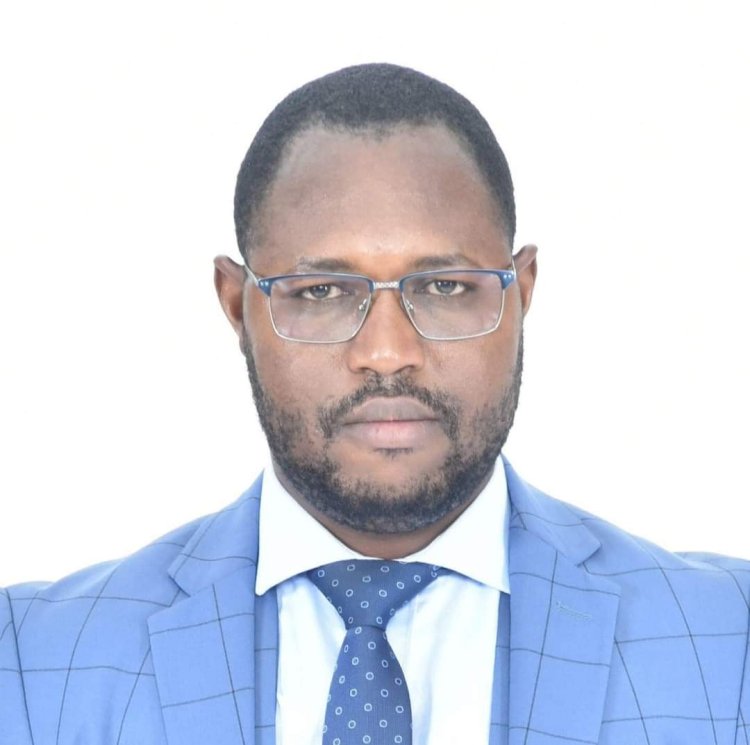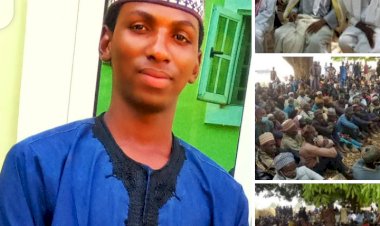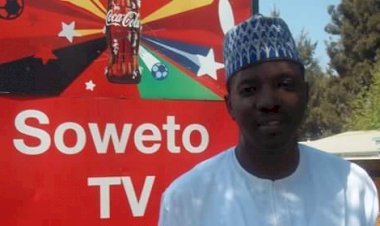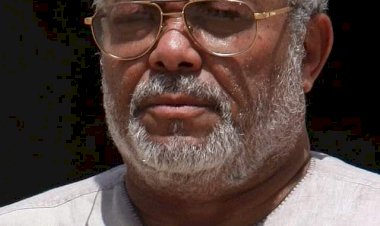Is it still useful to maintain relations between Guinea and the IMF?

According to press releases at the end of a recent short-term mission from the International Monetary Fund (IMF), the Guinean economy is doing well despite the advent of Covod-19.
According to the Monetary Fund, Guinea achieved growth of 6% in 2019, despite the contraction in economic activity. This growth would be supported only by the mining sector which he described as dynamic. It must be recognized that this performance of the Guinean economy is to be welcomed because, we have come a long way.
Economic growth without prosperity:
However, as an economist, I think that we should not at all rejoice in economic growth driven solely by the mining sector because, it is not only impoverishing but also and above all, we have no control over changes in the price of these raw materials. This could partly explain the drastic drop in economic growth in our country during periods of falling prices for these raw materials that we export.
To overcome these unforeseen events, I advocate a structural transformation of our economy. This measure will make it possible in the medium and long term to increase the economic and social resilience of the Guinean population, both on the demand side and the supply side, and thus offer the people of Guinea the best opportunities in terms of health, education, training but also and above all create job opportunities, especially for young people looking for paid work.
Moreover, even if this economic growth seems a little high in the eyes of some observers, it should nevertheless be stressed that it is capital intensive and not labor intensive. Likewise, this same growth is in no way redistributive given the low rate of fiscal pressure, which was around 15% in 2019 against 35% for Tunisia and more than 60% during the same year for some. middle and high income countries. This means that the wealth created by the Guinean state does not return to its level to enable it to face the financing of economic and social development projects.
IMF-Guinea relationship and its harmful impacts:
Since the early 1980s, Guinea like most African countries has been a sub-program with the International Monetary Fund (IMF). This makes almost four decades of adjustment and readjustment during which the economic situation of our country is going from bad to worse.
As a reminder, Guinea began this process in 1986 with an economic policy program oriented mainly towards the liberalization of the economy and the restoration of lost macroeconomic balances.
When it comes to taking stock, it must be recognized that the implementation of these various programs has not enabled all the expected results to be achieved. During this time our leaders who have succeeded at the head of our country have done everything to maintain good relations with the IMF to only get out of poverty, famine, misery, insecurity and many others. evils which plague our dear Guinea that we reserve to mention.
This same situation of Guinea stems from that of Africa because, after all these years of programs with the IMF, there is only one African country which has finally seen the end of the tunnel to climb to the top and hope one day develop. This is what leads some observers to assert without risk of being mistaken about the specific case of Africa that it is one of two things: either the patient suffers from an incurable disease, or the doctor is suffering from immeasurable incompetence. This is why I wonder about the need to maintain the relationship between Guinea and the IMF.
Some observations of the Guinean reality after so many years of programs with the IMF:
After 40 years of programs with the IMF, Guinea remains among the poorest countries on the planet. Ranked 183rd out of 188 countries in 2016 on the Human Development Index (HDI). She lost 12 places compared to the 2010 ranking where she was 176th. Meanwhile, its closest neighbors are faring better: Senegal (162nd) and Côte d'Ivoire (171st). Likewise, Tranparency International ranks it 148th out of 180 countries in the world and 31 out of 49 in Africa.
At the social level, there is growing poverty, with more than 60.7% of the Guinean population, especially women and children, are struck by multidimensional poverty (cf. RGPH 2016) and nearly 70% of this population has no access to drinking water and electricity.
According to the latest estimates, Guinea's infant mortality rate is around 56% according to the World Bank. In addition, we remain among the poorest countries on the planet and moreover, it leaves the 48 Least Developed Countries (LDCs) with a per capita income of less than US $ 5,000 per year etc.
Role and Responsibility of our various leaders:
The IMF is not necessarily responsible for all the ills that our country suffers from. However, it has its share of responsibility in the current situation in Guinea because of the various austerity programs that it has applied to our country with the active complicity of our political authorities.
By contemplating the list of evils which have and continue to undermine our economy, including among others: systemic corruption, insecurity, regionalism, tribalism in short, the erosion of moral and societal values coupled with the absence of vision over a long period , it is clear that we have a long way to go.
This is why we think of the image of Alpha Blondy in his fetish sentence that the enemy of Guinea is neither the IMF, nor the World Bank, even less of the institutions in which it freely adhered, but rather Guinean.
It is we Guineans who have instead turned our backs on the economic development of our country in the name of I do not know what else. We must therefore assume it, without trying to make others bear the burden.
Conclusion:
I cannot finish this little analysis without stressing here that development is a deeply endogenous concept which is exclusively based on political will. No country can claim to develop while claiming to entrust this responsibility to development partners, and even less to brotherly and friendly countries. This simply means that the development of Guinea will only be effective when we realize that this noble task is rightfully ours and this within the framework of the institutional and regulatory system already in place.
This is why we need to project ourselves into the future with a long-term vision of the cyclical but also structural transformations of our country in order to ensure that this prosperity is shared by all the worthy sons of this nation. In my humble opinion, this will only be possible if we get to work now through hard work and thoroughness.
In my humble opinion, there is no point in maintaining the programs with the IMF and its conditionalities which for the most part are not in phase with the socio-economic realities of our country because they are only based on the embellishment of the state of health of our economy by macroeconomic indicators using figures which are sometimes biased.
Finally, the Guinean authorities must now be able to design multi-year development plans based on the specificities of our economy and the behavior of the Guinean homo economicus. These plans will not only have to meet the growing needs of the population in terms of decent jobs and improvement of their well-being, but also and above all to move away from these policies which had until then been designed thousands of km away. our country and which have caused nothing but misfortune and suffering for Guineans.
By: Mamadou Safayiou Diallo
Financial analysts


















































